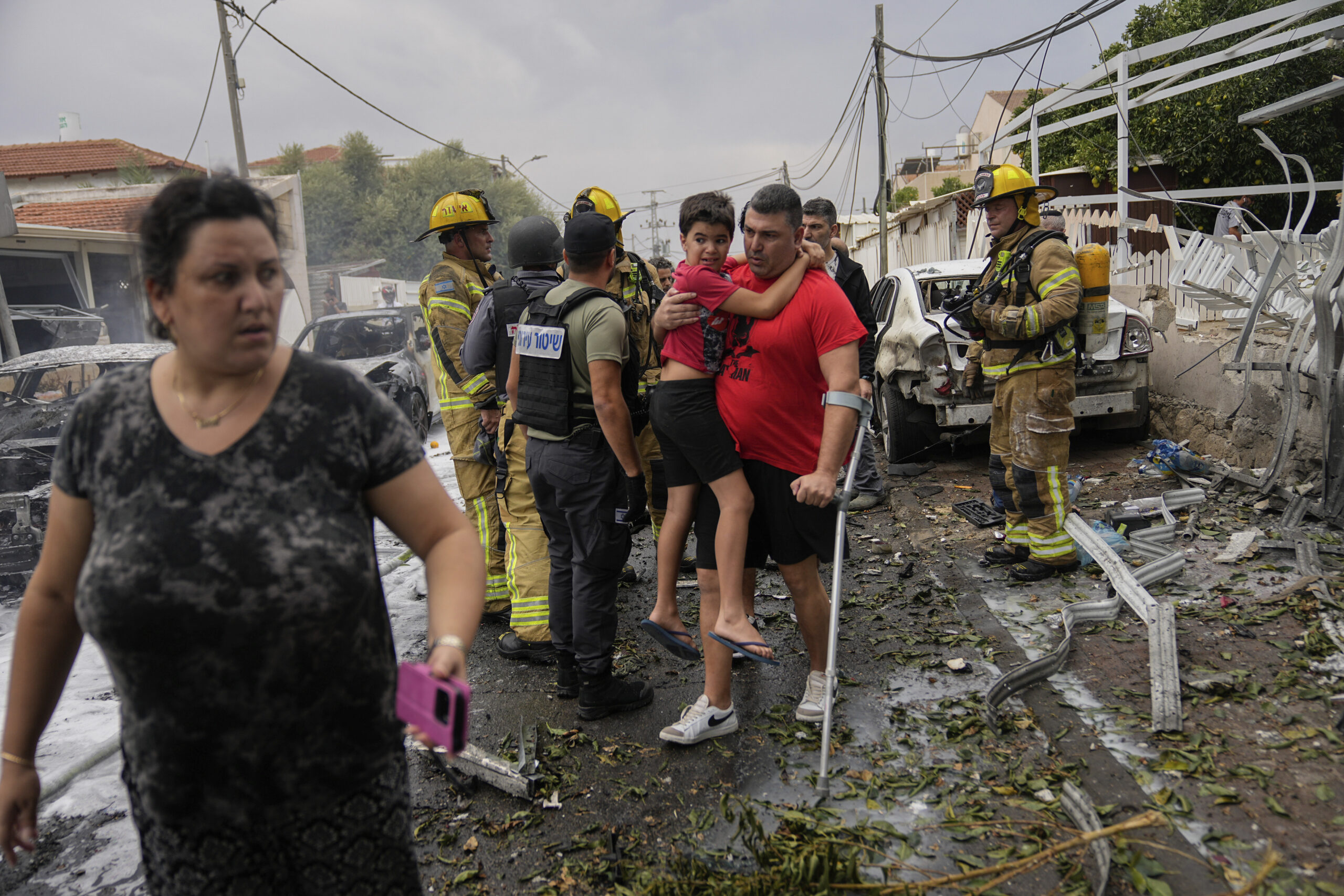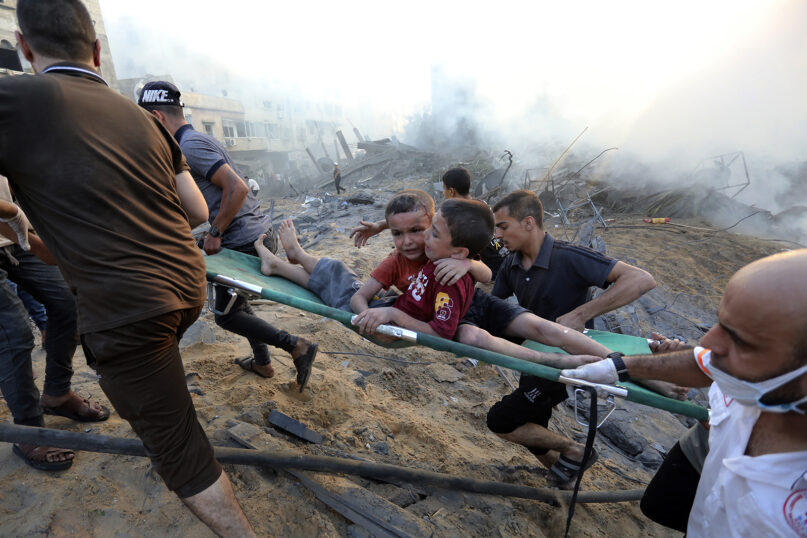(RNS) — When I was in Israel and the occupied territories in 2018 as part of an interfaith clergy trip, I saw a country much like my own, a place full of contradictions. As you exit Yad Vashem, the museum commemorating the Shoah in Jerusalem, you exit to a balcony in brilliant light that showcases the cityscape, as if, while many have attempted to snuff out the light of the Jewish people, they did not succeed.
But as I toured the region I also saw the poverty in the West Bank, automated machine guns at Gaza and a Lutheran bishop who spoke so eloquently about what it was like to be Palestinian in Bethlehem.
Yet, there seems to be shockingly little room for us to name and dwell in those contradictions. Mirroring a broader polarization in American political discourse, you either stand with Israel, or you are for Palestinian liberation. To endorse one is to leave no room for even the mention of the other.
Former President George W. Bush recently waded into the conflict with precisely that mindset, when he stated, “One side is guilty, and it’s not Israel.” On college campuses, meanwhile, pro-Hamas demonstrations have become a mainstay, with placards that read “From the river to the sea,” a slogan that simultaneously expresses some Palestinians’ hope for a state, while also calling for elimination of Israel.
It may seem outlandish, given the implicit religious divide that has helped fuel this crisis, to suggest that more religion might be just the balm we need, yet that is precisely what I propose. For religious leaders like me, who have relationships with Muslims and Jews, the most we can do is continue to build relationships and bear witness to the immense grief that is present in both communities.
All people of faith are called to have compassion, regardless of whether or not that pain fits with our preferred political narratives. In any spiritual understanding of this conflict, there is no Jewish pain or Muslim pain, only deep suffering. If we are divided in our response to this conflict, it is because we are bound up by our unwillingness to see and grapple with pain that comes from communities we do not have affinity with, or from people of differing political and religious viewpoints.

Israelis evacuate a site struck by a rocket fired from the Gaza Strip, in Ashkelon, southern Israel, Oct. 9, 2023. (AP Photo/Ohad Zwigenberg)
The remedy is to form the types of interfaith relationships that clarify our call to bear witness to pain.
Forming those relationships doesn’t require religious leaders to hold back for fear of offending others. We can condemn Hamas’ unbelievable brutality while also acknowledging that the Israeli occupation is ruthless and untenable. We can pray for the safe return of hostages and for Palestinians facing a humanitarian crisis.
I recently attended services in solidarity with two Jewish communities of faith where congregants prayed earnestly for the Israel Defense Forces. I have received pushback on my condemnation of Hamas, as well as my commitment to naming the Israeli occupation as the context for this conflict.
Discomfort and conflict are part of interfaith work at this time, but the relationships formed across lines of religion are of vital importance for preventing the next wave of antisemitic and Islamophobic violence. Right now, showing up matters much more than agreement.
(The Rev. Michael Woolf, Th.D., is senior minister of Lake Street Church of Evanston, Illinois, and co-associate regional minister for white and multicultural churches at the American Baptist Churches of Metro Chicago. He is the author of “Sanctuary and Subjectivity: Thinking Theologically About Whiteness in Sanctuary Movements.” The views expressed in this commentary do not necessarily reflect those of Religion News Service.)





